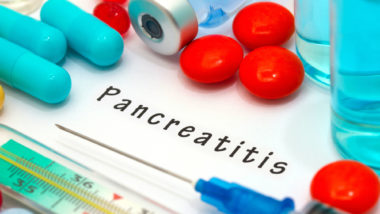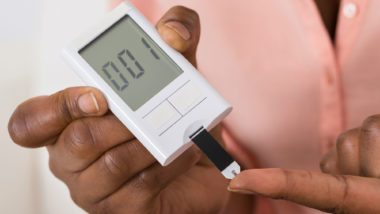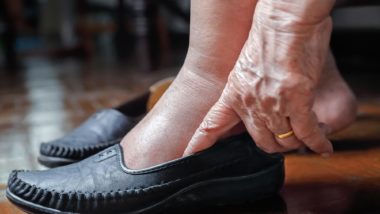Top Class Actions’s website and social media posts use affiliate links. If you make a purchase using such links, we may receive a commission, but it will not result in any additional charges to you. Please review our Affiliate Link Disclosure for more information.

In August, the FDA released a warning that a type of medication designed to treat type-2 diabetes may have some rare but horrifying side effects. Drugs like Invokamet and Invokamet XR are two drugs in a class of diabetes drugs called sodium-glucose cotransporter-2 (SGLT2) inhibitors.
SGLT2 inhibitor drugs help to treat diabetes by lowering a patient’s blood sugar, by causing excess sugar to be expelled in the urine.
However, the excess sugar in the urine and thereby the presence of an increase of sugar in the genitals can be a flesh eating disease cause because the sugar can cause a patient’s genitalia to be more susceptible to infection by bacteria than they otherwise would be. Sugar feeds bacteria, and the presence of a lot of it can promote bacterial growth.
Unfortunately, one of the types of bacterial infection that has been linked to the use of SGLT2 is Fournier’s gangrene, a bacteria that can destroy the flesh with which it comes in contact. Fournier’s gangrene has come to be known more commonly as a “flesh-eating bacterial infection,” and when it attacks the genitalia, it’s known as necrotizing fasciitis of the perineum.
Happily, this condition is extremely rare, so most people won’t experience it when they use SGLT2 inhibitors. But, for those who do experience it, the consequences are devastating. The condition can escalate quickly, and what looked one day like redness or tenderness can quickly turn into a full-blown infection that is very hard to treat.
Forbes gave a write-up of the condition in their online publication in September, describing treatment for the condition as a “race against the bacteria and time.” Patients with the condition are given antibiotics, and in severe cases, affected tissue may have to be removed.
The Centers for Disease Control and Prevention notes that necrotizing fasciitis can be caused by a range of factors that allow bacteria to enter the skin. In addition to its connection with SGLT2 inhibitor drugs, flesh eating disease causes can include other instances in which the skin is broken or weakened through cuts and scrapes, burns, insect bites, puncture wounds (including those caused by medical needles), and surgical wounds.
Some initial symptoms of the flesh-eating bacteria include:
- changes in the color of the skin
- redness or tenderness
- fatigue
- diarrhea or nausea
- pus or oozing from the infected area
- ulcers, blisters, or black spots on the skin
This concern over Fournier’s gangrene, and the FDA’s warning about the issue, came after twelve cases were reported in which patients who were taking SGLT2 inhibitors like Invokamet and Invokamet XR had been diagnosed with Fournier’s gangrene between March 2013 and 2018, suggesting that the flesh eating disease causes could include SGLT2 inhibitor drugs.
The FDA did stress that more people may have developed the infection but their cases were not reported to the FDA, so the risk of the flesh eating bacteria may be higher than experts know.
Join a Free Diabetes Medications & Flesh-Eating Infection Lawsuit Investigation
The type-2 diabetes medications linked to the flesh-eating infection include:
- Invokana
- Invokamet/Invokamet XR
- Farxiga
- Xigduo XR
- Qtern
- Jardiance
- Glyxambi
- Synjardy/Synjardy XR
- Steglato
- Segluromet
- Steglujan
If you or a loved one took one of the type-2 diabetes medications listed above and suffered from a flesh-eating genital infection, you may qualify to join this diabetes medication lawsuit investigation. Fill out the FREE form on this page for more information.
ATTORNEY ADVERTISING
Top Class Actions is a Proud Member of the American Bar Association
LEGAL INFORMATION IS NOT LEGAL ADVICE
Top Class Actions Legal Statement
©2008 – 2024 Top Class Actions® LLC
Various Trademarks held by their respective owners
This website is not intended for viewing or usage by European Union citizens.
Get Help – It’s Free
Join a Free Diabetes Medications & Flesh-Eating Infection Lawsuit Investigation
If you qualify, an attorney will contact you to discuss the details of your potential case at no charge to you.
PLEASE NOTE: If you want to participate in this investigation, it is imperative that you reply to the law firm if they call or email you. Failing to do so may result in you not getting signed up as a client or getting you dropped as a client.
E-mail any problems with this form to:
Questions@TopClassActions.com.
Oops! We could not locate your form.












